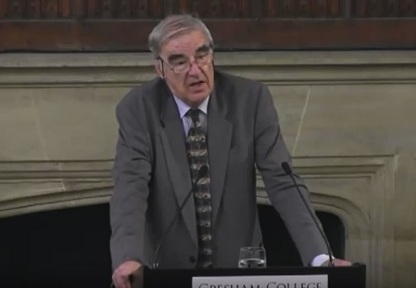Ex-judge committed care home suicide believing 'his time was over' after dementia diagnosis
Former senior judge Sir Nicholas Wall wrote letters to his loved ones telling them ‘it’s nobody’s fault’ before hanging himself in his bedroom at Emily Jackson House care home in Sevenoaks.

Sir Nicholas, aged 71, lived with fronto-temporal lobe dementia and had only recently been diagnosed with the condition, an inquest on 7 June into his death heard.
‘He had lost the will to live’
Two letters Sir Nicholas had written before he committed suicide in the early hours of 17 February, included a letter to his wife Lady Wall.
Acting Detective Sergeant Robert Grieve, of Kent Police, told the inquest: “Sir Wall said he had lost the will to live and he will not get better and that Lady Wall had a life to live.
“He said his time is over, it's nobody's fault and he respects what she has done for him."
In another letter, Sir Nicholas said he had "no hope for the future”.
The inquest, held at The Archbishops' Palace in Maidstone, heard the former judge was last seen alive by a nurse who visited his room to give him his medicine and a cup of tea.
Mr Grieve told the inquest that during her visit, Sir Nicholas made a joke to her about being late and he was reading a book when she left.
A staff member discovered Sir Nicholas' body after spotting he was not in his bed shortly before 2am.
The North West Kent coroner Roger Hatch recorded his cause of death as ’suspension’, with a secondary cause listed as fronto temporal dementia. The coroner recorded a conclusion of suicide.
The Cambridge graduate was called to the Bar in 1969 and appointed Queen's Counsel in 1988. He became a High Court Family Division judge in 1993 and was promoted to the Court of Appeal in 2004. He became president of the Family Division in 2010 but retired on health grounds in 2012.
Fronto-temporal dementia is caused when nerve cells in the frontal and/or temporal lobes of the brain die. It affects the control of behaviour and emotions and also a person’s understanding of words.
In a statement, Sir Nicholas's family said: "Sir Nicholas took his own life having suffered for several years from a rare neurological disease called fronto-temporal lobe dementia that had only recently been diagnosed."
Latest News
 29-Jul-24
Dementia Bus gives carehome.co.uk staff insight into life with dementia
29-Jul-24
Dementia Bus gives carehome.co.uk staff insight into life with dementia
 01-Mar-24
Find out the top care homes in 2024
01-Mar-24
Find out the top care homes in 2024
 21-Mar-23
UK's top care homes in 2023 revealed
21-Mar-23
UK's top care homes in 2023 revealed
 03-Jan-23
carehome.co.uk launches free care helpline
03-Jan-23
carehome.co.uk launches free care helpline
 13-Dec-22
5 mins with Emily Whitehurst, chief operating officer for Constantia Healthcare
13-Dec-22
5 mins with Emily Whitehurst, chief operating officer for Constantia Healthcare